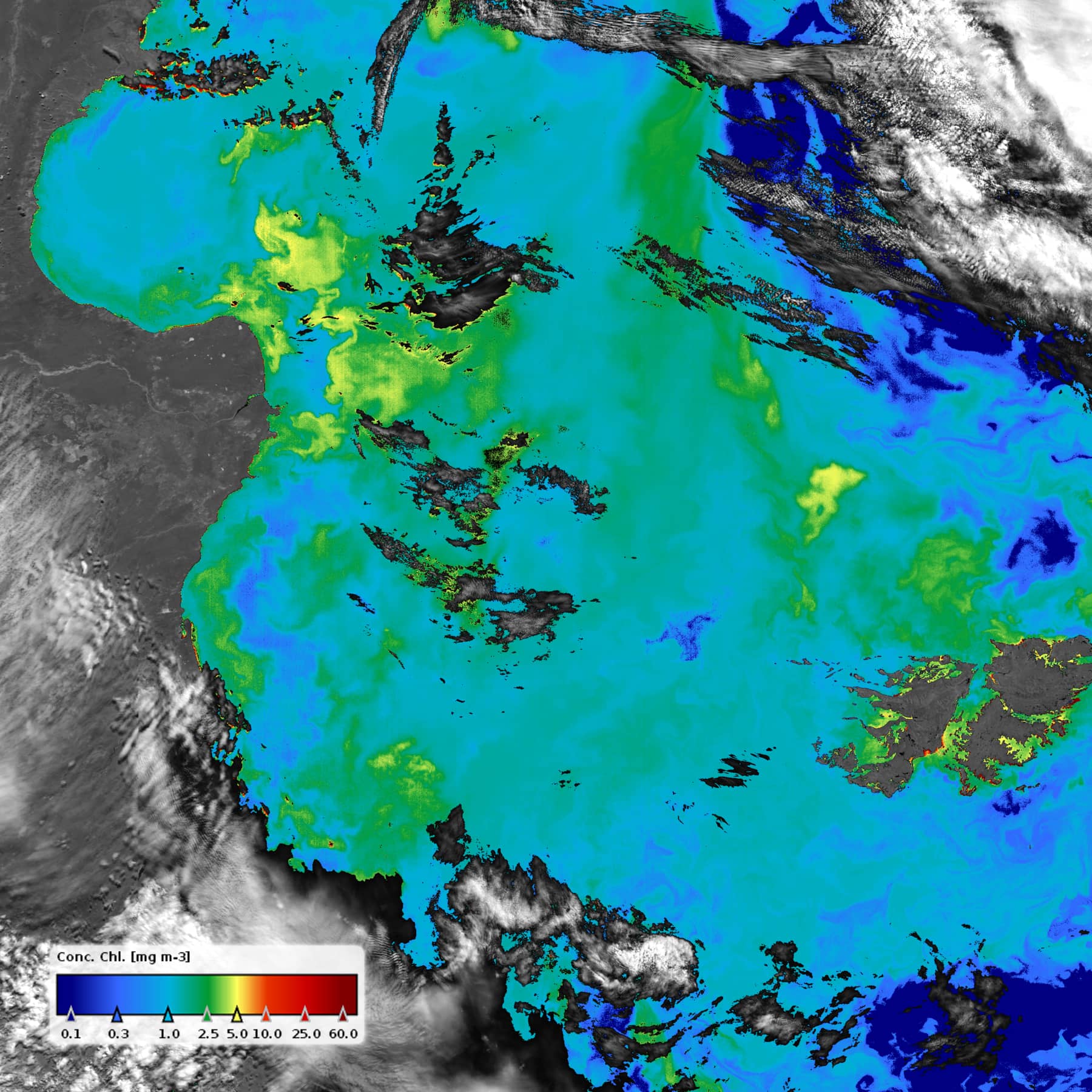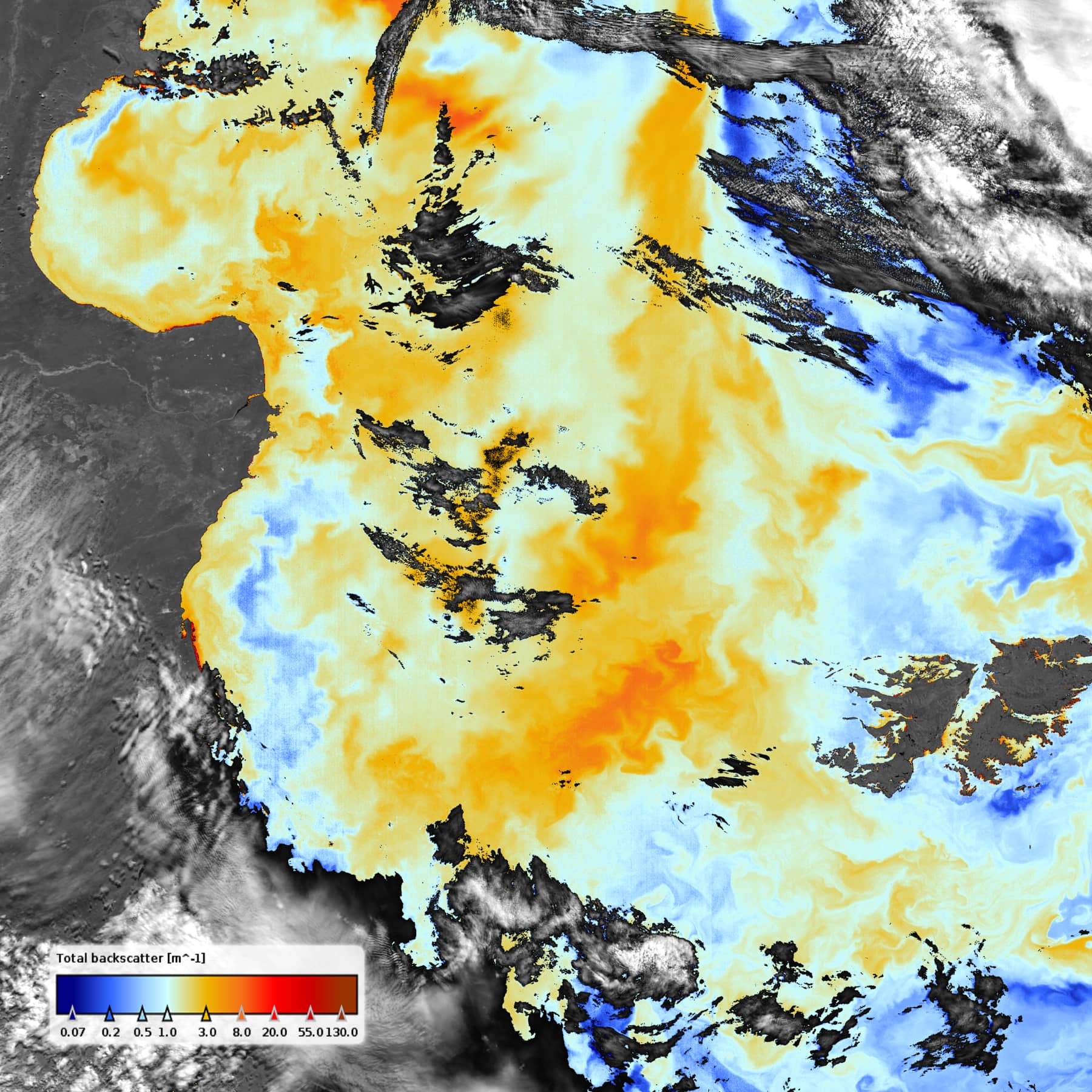Atmospheric correction and retrieval of water constituents from optical satellite imagery acquired by a variety of sensors
A Community Project
C2RCC is open source and it maintained by the Water Colour Community. This site is the home of the C2RCC Community Project where all information about the code, the neural nets and the science is shared.
- The ESA Sentinel Application Platform (SNAP) and Sentinel Toolboxes include the C2RCC processor tool.
- The public code repository of the ESA Sentinel-3 Toolbox includes the source code of the C2RCC processor. Neural networks are included within the resources directory.
- The ESA Scientific Toolbox Exploitation Platform (STEP) is the community platform for accessing the Toolbox software and its documentation, communicating with the developers, dialoguing within the science community, promoting results and achievements as well as providing tutorials and material for training scientists using the Toolboxes.
See more in the Developer section.
The scientific foundation
C2RCC is a processor for atmospheric correction and retrieval of water constituents from optical satellite imagery acquired by a variety of sensors. The algorithmic foundations of C2RCC were laid by Schiller & Doerffer (1999) who pioneered a methodology to tackle the problem of atmospheric correction and in-water retrieval by means of machine learning techniques. They trained artificial neural networks with representative spectra generated by radiative transfer modelling. Networks were first implemented in the Case-2 Regional processor for specific and generic inland waters, which later, in the course of ESA DUE CoastColour, evolved into the C2RCC processor (Brockmann et al., 2016).
- Schiller, Helmut; Doerffer, Roland (1999). Neural network for emulation of an inverse model operational derivation of Case II water properties from MERIS data, International Journal of Remote Sensing, 20:9, 1735-1746, https://doi.org/10.1080/014311699212443.
- Brockmann, Carsten; Doerffer, Roland; Peters, Marco; Kerstin, Stelzer; Embacher, Sabine; Ruescas, Ana (2016). Evolution of the C2RCC Neural Network for Sentinel 2 and 3 for the Retrieval of Ocean Colour Products in Normal and Extreme Optically Complex Waters. Living Planet Symposium, Proceedings of the conference held 9-13 May 2016 in Prague, Czech Republic. Edited by L. Ouwehand. ESA-SP Volume 740, ISBN: 978-92-9221-305-3, p.54.
See more in the Documentation section.
Physical approach – Machine Learning applied to bio-optical and atmosphere RT models
While the machine learning aspect is often mentioned when the C2RCC methodology is discussed, the proper optical specification of the underlying water and atmosphere conditions is often overlooked. The optical specification consists of the parameterization of the in-water and atmospheric radiative transfer models, and the specification of the bio-optical model used to generate the training dataset (i.e., the value range, covariance and frequency distribution of water constituents).
See more in the Neural Nets section.



